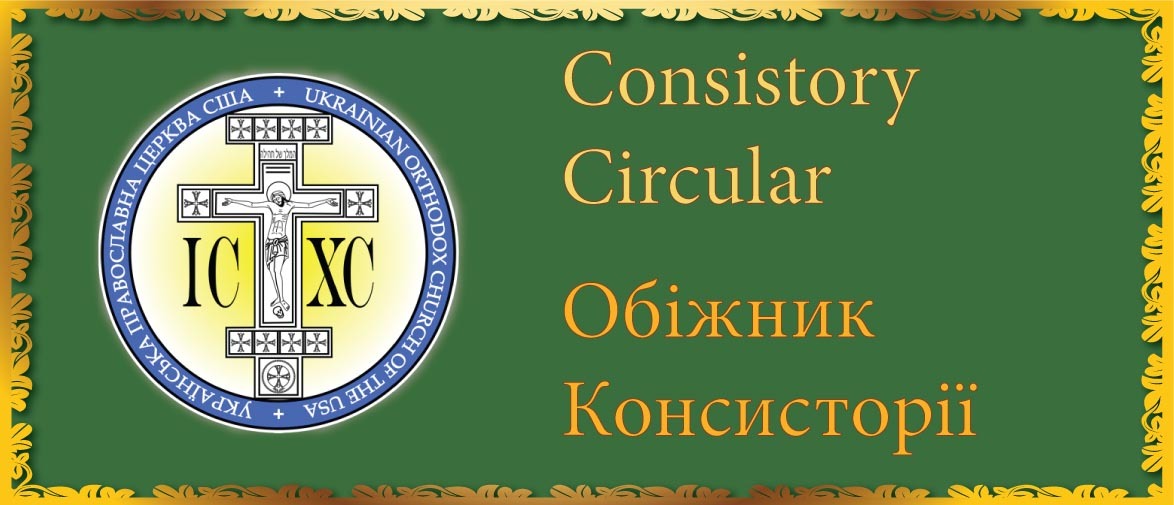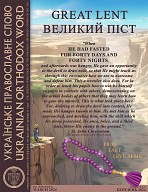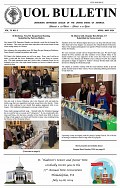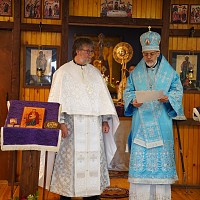Which is worse: blindness or death? Perhaps the answer is not as simple as it seems. Perhaps there is a link between death and blindness that we, as Christians, need to explore.
Six weeks into the feast of Pascha, our gospel readings swerve abruptly away from the resurrection accounts we’ve been hearing to stories about Jesus’ life and ministry, particularly involving incidents where Jesus healed someone. The Church is, I believe, telling us that, now that we have thoroughly heard about Christ’s resurrection, we should take another, closer look at Christ’s ministry in light of His resurrection.
The healing of the man born blind starts with an unusual event; The Lord spits on the ground and makes mud. Since Jesus is God, we may wonder why He doesn’t just say, “Presto, I give you new sight” and be done with it. Instead Jesus sends this man on a strange journey. He smears mud on the blind man’s eyes, and tells him to go to a pool and wash it off. Imagine a blind man stumbling through the streets of Jerusalem, feeling his way to a pool with some stinky mud on his eyes! It almost seems comical.
Yet, in this action, there are important scriptural allusions. When Jesus spits in the earth, he is not really making mud but clay. In the later prophetic writings, like Job and Jeremiah, God is likened to a potter. We should hear Job saying to the Lord, “Remember, I pray, that You have made me like clay.” So as Jesus uses water from His own body and mixes it with the dust of the earth, from which the first man also was made, He is revealed as the divine Potter, fixing His broken creation, not from far away, but up close and personal.
This is not some kind of magic trick. It required the blind man’s full cooperation. When Jesus put clay on the blind man’s eyes, nothing happened until the blind man was willing to struggle to find his was to the pool of Siloam. In other words, healing is freely offered but rarely does it come without human participation.
Not everyone was happy about this miracle. One could say, in fact, that the opening of one man’s eyes lead to the closing of many others. The response from the Pharisees was neither joy nor wonder. In fact, they were not even curious. They were happy to keep and even expand the Mosaic Law into a measurable means of believing they where doing something God expected. To have God so close that you could reach out and touch Him was neither desirable nor plausible to such people. They wanted God conveniently tucked away in Heaven. And so, instead of using the Mosaic Law as a means to lead them to God, they slavishly used Sabbath regulations to build a wall and thus failed to behold the miracle of God healing a blind man.
This mindset is not unique to the days when Christ walked the earth. The rejection of Jesus-as-God is a blight that shows itself in every age. In fourth century Egypt, it was the Arians. In seventh century Arabia, it was the Moslems. In tenth century Bulgaria, it was the Bogomils. Even in our own time, we have plenty, such as the Jehovah’s Witnesses, who profess Christ as something less than God. This tendency is ever lurking around the corner. For when we profess Christ as God, we see how close God is to humanity. When we reject this understanding, we push Him away where He cannot bother us, break us, mold us, or change us. And in the end, we remain blind; so blind that even when we see it written here in scripture, we miss it.
Now, let’s get back to my initial question. Which is worse: blindness of death? Well, throughout scripture five human agents, other than Jesus, have been used to the raise the dead: the prophets Elias, Elisha, and Ezekiel and the Apostles Peter and Paul. Strangely, blindness is another matter. In the Old Testament only Tobit is healed of blindness, and it is witnessed to by the Angel Raphael. But in the New Testament, only Jesus heals the blind. In scripture, blindness is an image of ignorance about God, both accidental and willful. And while many might be called to raise the dead, God has made it His prerogative to enlighten those who do not perceive Him.
But if we remain unwilling to do whatever God asks us to achieve this “sight,” it would be the same as if the blind man refused to stumble his way to the pool to wash the clay from his eyes. And that is where death and blindness meet. If we cannot see or behold Jesus as Lord and God, then we certainly cannot behold His resurrection nor partake of it ourselves. God has already remolded us and offered us sight; now it is our job to stumble forward and do whatever it takes to accept this correction to our vision. In doing so, we will find that our eyes will behold the path to our own salvation through Christ’s resurrection.
by Fr. Silouan Rolando












